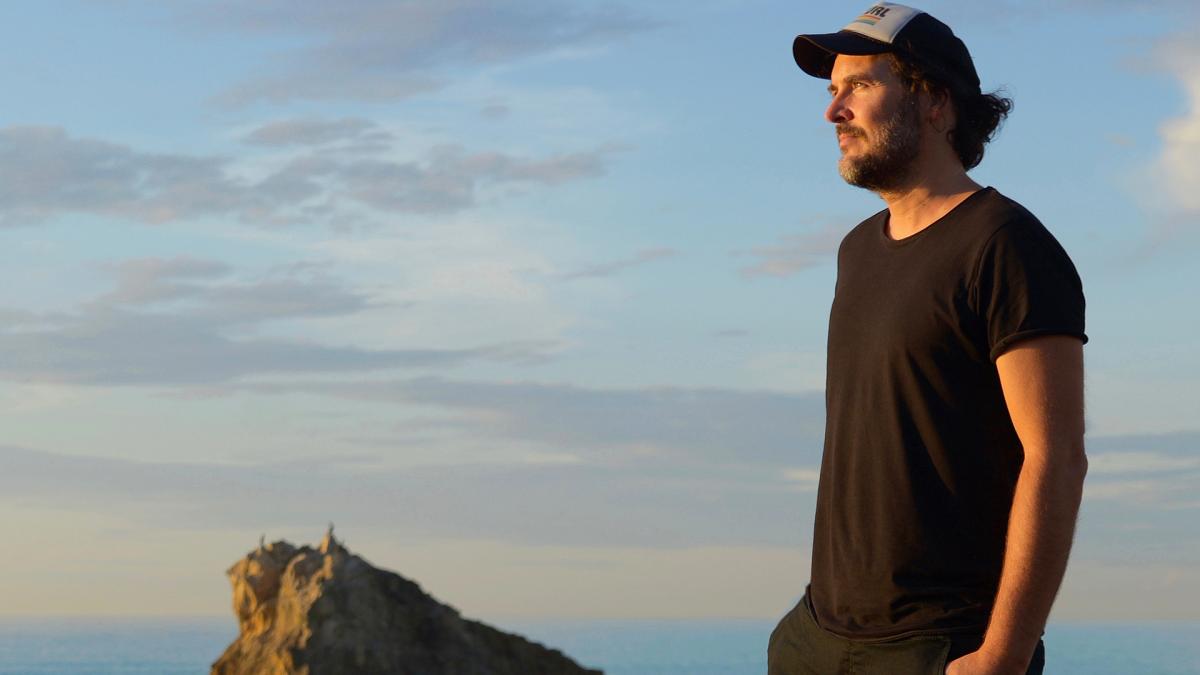The practice of staging in the age of climate change
Shakespeare wrote that “All the world’s a stage”, but on the theatre stage we only see and hear about human beings, their emotions and ideas. In his doctoral artistic research Reacclimating the stage (Skenomorphoses), Vincent Roumagnac asks how this Teatrum Mundi might transform through the climatic and technological accelerations we live in.

Vincent Roumagnac is a French-Basque theatre director and researcher based in Finland and France. Roumagnac conducted his doctoral artistic research project Reacclimating the Stage (Skenomorphoses) at the Performing Arts Research Centre in the University of the Arts Helsinki’s Theatre Academy. His doctoral research is now published as a multimedia object online, and will be soon concluded by a final exhibition and a public examination.
Roumagnac examines the transformations of the notion of the stage, and therefore of scenic practices, in the face of climatic and technological mutations of the 21st century. He is concerned by deconstructing the fundamental anthropocentrism embedded in the very mechanisms of theatre, especially in its conventional temporal setting.
“Like many of my peers, I consider anthropocentrism unsustainable in a time when human activity has posed a profound impact on the environment. I come from a classical theatre background. I worked first as an actor, then as a director. About ten years ago, I felt the need to move my practice away from the toxicities of this anthropocentric ecology of the theatre production-machine. I therefore quit straight theatre directing and started to go sideways, examining new conditions for “making theatre”, trying to generate alternative stage imaginaries more suitable to the contemporary techno-ecological challenges”, Roumagnac says.
He points out that every element of western theatre is scaled by human engineering. He starts with the theatre architecture: the audience and the stage in front of them, backstage hidden behind.
“I propose to open up the human-sized stage and to let enter what is usually hidden in the backstage. The stage is thus no more a monofocal centre of attention, but transforms into a polyphonic milieu in which more-than-human actors are welcome to perform. The production and organization of the stage is rescaled, being projected beyond human perception and history.”
Roumagnac looks at the stage and staging through the methodology of deconstruction and queer theory, destabilising the power structures and questioning the scenic relationship between human beings and the environment.
“The environment is not anymore “out there”, or behind the actor, reduced to a dramatic landscape painted on a stage backdrop. The non-human world cannot be any more considered as a peripheral décor. I am interested in examining how a complex environment, made of biological and technological entities, can be credited as the leading part of the cast, and how this inversion changes the very infrastructures of theatre-making”, Roumagnac concludes.
MA in Arts de la Scène (Stage/Scenic Arts) Vincent Roumagnac‘s doctoral research Reacclimating the Stage (Skenomorphoses) will be presented for public examination on Saturday, September 5, 2020 at 12 o’clock at the University of the Arts Helsinki’s Theatre Academy. The occasion is in English. The public examination will be streamed into the Auditorium 1 at the Theatre Academy, and it can also be followed on Uniarts Helsinki’s Youtube channel. Roumagnac’s public examination takes place in the Theatre Academy’s Studio 3 in the installation The Final Stage. The installation opening is on Tuesday, September 1 at 6 pm.